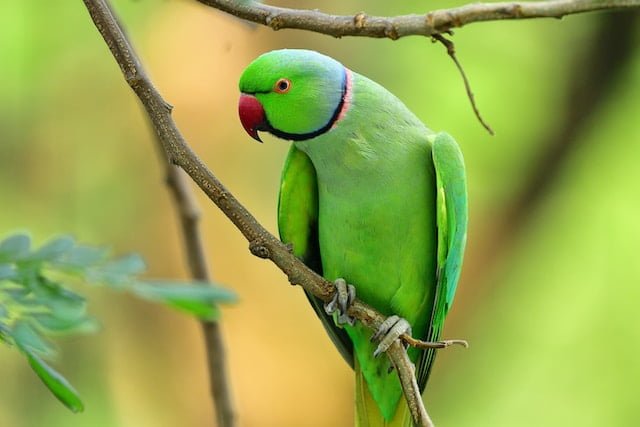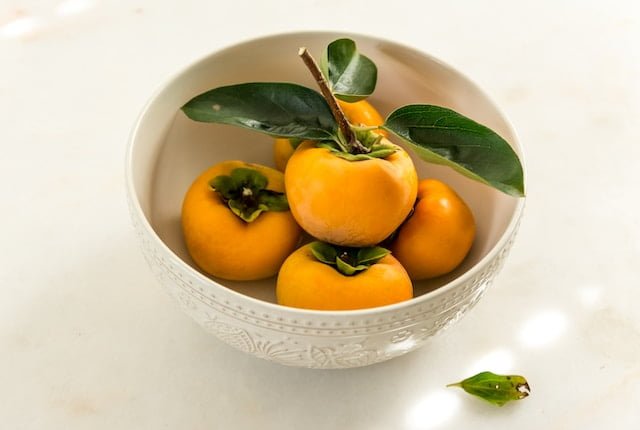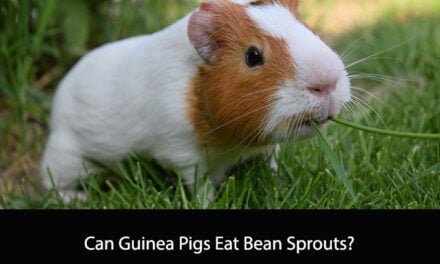Parrots are known for their diverse diet, and it’s important for owners to understand what foods are safe for their feathery friends to consume. One fruit that often raises questions is the persimmon. Can parrots eat persimmons?
The answer is yes, parrots can eat persimmons. These sweet and juicy fruits are a great source of vitamins and minerals, including vitamin A, vitamin C, potassium, and fiber. However, as with any new food, it’s important to introduce persimmons slowly and in small amounts to ensure that your parrot tolerates them well.

Understanding Parrots’ Dietary Needs
Parrots are known for their ability to mimic human speech and their vibrant plumage, but their dietary needs are equally important. As pet owners, it’s our responsibility to ensure that our feathered friends are receiving a balanced and nutritious diet.
In the wild, parrots consume a variety of foods including fruits, nuts, seeds, and insects. However, the specific dietary needs of each species can vary greatly. For example, some parrots are primarily seed eaters while others consume more fruits and vegetables.
It’s important to research the dietary needs of your specific parrot species and provide a varied diet that meets those needs. A diet that is deficient in essential nutrients can lead to health problems such as feather plucking, beak deformities, and weakened immune systems.
In addition to providing a balanced diet, it’s important to avoid feeding your parrot certain foods that can be harmful. For example, avocado, chocolate, caffeine, and alcohol should never be given to parrots as they can be toxic.
Overall, understanding your parrot’s dietary needs is crucial for maintaining their health and well-being. By providing a varied and balanced diet, avoiding harmful foods, and researching the specific needs of your parrot species, you can ensure that your feathered friend is happy and healthy.
Persimmons: An Overview
Persimmons are a type of fruit that are native to China, but are now grown in many parts of the world. They are known for their sweet and tangy flavor, and are often used in desserts and other dishes.
There are two main types of persimmons: astringent and non-astringent. Astringent persimmons are high in tannins, which can make them bitter and unpleasant to eat if they are not fully ripe. Non-astringent persimmons, on the other hand, are sweeter and can be eaten when they are still slightly firm.
Persimmons are a good source of vitamins A and C, as well as fiber. They also contain antioxidants, which can help protect the body against damage from free radicals.
When it comes to feeding persimmons to parrots, it is important to note that they should only be given in moderation. While persimmons are safe for parrots to eat, they are high in sugar and can cause digestive issues if given in large quantities. It is also important to make sure that the persimmons are fully ripe before feeding them to your parrot, as unripe persimmons can be very astringent and cause mouth irritation.
Overall, persimmons can be a tasty and nutritious treat for parrots when given in moderation and with proper preparation.
Nutritional Value of Persimmons
Persimmons are a sweet and juicy fruit that can be enjoyed by many animals, including parrots. They are a great source of nutrients and can provide many health benefits for your feathered friend. Here are some of the key nutritional values of persimmons:
- Vitamins: Persimmons are high in vitamin A and C, which are essential for maintaining healthy eyesight, skin, and immune system.
- Minerals: Persimmons are a good source of minerals such as potassium, magnesium, and calcium. These minerals are important for maintaining healthy bones, muscles, and nervous system.
- Fiber: Persimmons are rich in fiber, which can help regulate digestion and prevent constipation.
- Antioxidants: Persimmons contain antioxidants such as carotenoids and flavonoids, which can help protect cells from damage caused by free radicals.
- Low in fat and calories: Persimmons are low in fat and calories, making them a great snack for parrots who need to maintain a healthy weight.
Overall, persimmons are a nutritious and delicious fruit that can be a great addition to your parrot’s diet. However, as with any new food, it’s important to introduce persimmons slowly and in small amounts to avoid any digestive upset.
Can Parrots Eat Persimmons?
We often wonder if our feathered friends can eat the same fruits and vegetables as us. One such fruit is persimmon, which is sweet and juicy. But can parrots eat persimmons?
The answer is yes, parrots can eat persimmons. Persimmons are a good source of vitamins A, C, and E, as well as fiber. They are also low in fat and calories, making them a healthy snack for your parrot.
However, it is important to note that persimmons should only be given to your parrot in moderation. This is because they are high in sugar and can lead to weight gain if consumed in excess.
Additionally, make sure to remove the seeds and stem from the persimmon before giving it to your parrot. The seeds contain trace amounts of cyanide, which can be harmful to birds in large quantities.
In conclusion, persimmons can be a healthy and tasty treat for your parrot, but should be given in moderation and with caution.

Benefits of Persimmons for Parrots
Persimmons are a great fruit that can bring many benefits to our feathered friends. Here are some of the reasons why we believe persimmons can be a healthy addition to a parrot’s diet:
- High in Vitamins and Minerals: Persimmons are rich in vitamins A, C, and K, as well as minerals such as potassium, copper, and manganese. These nutrients can help to support a parrot’s immune system, bone health, and overall wellbeing.
- Good Source of Fiber: Persimmons are a good source of dietary fiber, which can help to promote healthy digestion and prevent constipation in parrots.
- Low in Fat and Calories: Persimmons are a low-fat, low-calorie fruit, which makes them a great snack option for parrots who need to watch their weight.
- Contain Antioxidants: Persimmons contain antioxidants such as beta-carotene and lycopene, which can help to protect a parrot’s cells from damage caused by free radicals.
- Easy to Prepare: Persimmons are easy to prepare for parrots. Simply wash the fruit, remove the stem, and slice it into small pieces before serving.
Overall, persimmons can be a healthy and tasty addition to a parrot’s diet. However, it’s important to remember that they should be given in moderation, as too much fruit can lead to digestive issues or weight gain in parrots.
Potential Risks of Persimmons for Parrots
When it comes to feeding our feathered friends, it’s important to be aware of the potential risks associated with certain foods. While persimmons may seem like a healthy and tasty snack for parrots, there are some things to consider before adding them to your bird’s diet.
Firstly, persimmons contain high levels of sugar, which can be harmful to parrots if consumed in excess. Too much sugar can lead to obesity, diabetes, and other health issues. It’s important to limit the amount of persimmons you feed your parrot and to balance their diet with other nutritious foods.
In addition to their high sugar content, persimmons also contain tannins, which can be toxic to parrots in large quantities. Tannins can cause digestive upset, liver damage, and other health problems. While small amounts of tannins are generally safe for parrots, it’s important to monitor your bird’s intake and avoid feeding them too many persimmons at once.
Overall, while persimmons can be a healthy and tasty treat for parrots in moderation, it’s important to be aware of the potential risks associated with feeding them to your bird. As with any new food, it’s important to introduce persimmons slowly and in small amounts to ensure that your parrot can tolerate them without any adverse effects.
How to Serve Persimmons to Parrots
When it comes to feeding persimmons to parrots, it’s important to take a few precautions to ensure that your feathered friend stays healthy. Here are some tips on how to serve persimmons to parrots:
- Choose ripe persimmons: Make sure the persimmons you choose are ripe, as unripe persimmons can be bitter and astringent. Ripe persimmons are soft to the touch and have a sweet, mild flavor.
- Remove the skin: Before serving persimmons to your parrot, be sure to remove the skin. The skin can be tough and difficult for parrots to digest.
- Cut into small pieces: Cut the persimmons into small, bite-sized pieces that are easy for your parrot to handle and chew.
- Serve in moderation: While persimmons are safe for parrots to eat, they should be served in moderation. Too much fruit can be high in sugar and lead to health problems.
- Offer variety: Persimmons can be a healthy addition to your parrot’s diet, but they should not be the only fruit your parrot eats. Offer a variety of fruits and vegetables to ensure your parrot gets a balanced diet.
By following these simple tips, you can safely serve persimmons to your parrot as a tasty treat.
Alternative Fruits for Parrots
As much as we love persimmons, we understand that not all parrots may enjoy them or may have dietary restrictions that prevent them from eating them. Fortunately, there are many other fruits that parrots can enjoy. Here are some of our favorites:
- Apples: This classic fruit is a great source of fiber and vitamin C. Just be sure to remove the seeds and core before feeding it to your parrot.
- Berries: Blueberries, raspberries, strawberries, and blackberries are all packed with antioxidants and vitamins. Plus, their small size makes them perfect for parrots to hold and eat.
- Grapes: These bite-sized fruits are a good source of hydration and contain vitamins C and K. Be sure to cut them in half before feeding them to your parrot to prevent choking.
- Mangoes: This tropical fruit is high in vitamins A and C and is a great source of fiber. Just be sure to remove the skin and pit before feeding it to your parrot.
- Papayas: Another tropical fruit, papayas are rich in vitamins A and C and contain enzymes that aid in digestion. Be sure to remove the skin and seeds before feeding it to your parrot.
- Pomegranates: These juicy fruits are a good source of antioxidants and vitamins C and K. Just be sure to remove the seeds before feeding them to your parrot.
Remember to always introduce new fruits slowly and in small amounts to ensure that your parrot does not have an adverse reaction. And as always, consult with your veterinarian to ensure that any new additions to your parrot’s diet are safe and appropriate.

Conclusion
After conducting thorough research on the topic, we have come to the conclusion that parrots can eat persimmons. However, it is important to note that persimmons should only be given to parrots in moderation as they contain high amounts of sugar.
While persimmons do offer some nutritional benefits, such as being rich in vitamin C and fiber, they should not be relied upon as a primary source of nutrition for parrots. It is important to provide a balanced diet consisting of a variety of fruits, vegetables, grains, and protein sources.
When offering persimmons to parrots, it is recommended to remove the seeds and skin as they can be difficult for parrots to digest and may cause digestive issues. Additionally, it is important to ensure that the persimmons are ripe and soft, as unripe persimmons contain high levels of tannins which can be harmful to parrots.
Overall, persimmons can be a healthy and tasty addition to a parrot’s diet when given in moderation and prepared properly. As with any new food, it is recommended to introduce persimmons slowly and monitor your parrot’s reaction to ensure that they do not have any adverse reactions.
Frequently Asked Questions
Are persimmons safe for parrots?
Yes, persimmons are safe for parrots to eat. However, it is important to note that moderation is key when introducing new foods to your parrot’s diet.
What are the risks of feeding persimmons to parrots?
While persimmons are generally safe for parrots, it is important to note that the seeds and skin of the fruit can pose a choking hazard. Additionally, persimmons contain high levels of sugar, so overfeeding can lead to obesity and other health issues.
How should persimmons be prepared for parrots?
Persimmons should be washed thoroughly before feeding them to your parrot. It is recommended to remove the skin and seeds before feeding, as they can pose a choking hazard. The fruit can be sliced or diced into small pieces for easy consumption.
Can parrots eat persimmons with the skin?
While the skin of persimmons is not toxic to parrots, it is recommended to remove the skin before feeding them to your bird. The skin can be tough and difficult to digest, and can also pose a choking hazard.
What are some alternative fruits for parrots?
Some alternative fruits that are safe for parrots to eat include apples, bananas, berries, mangoes, and papayas. It is important to introduce new foods slowly and in moderation to avoid digestive issues.
What are the nutritional benefits of feeding persimmons to parrots?
Persimmons are a good source of vitamin A, vitamin C, and fiber. They also contain antioxidants, which can help boost your parrot’s immune system and overall health. However, due to their high sugar content, it is important to feed persimmons in moderation.





